5 Apps to Help You Live More Sustainably
Posted by Pawan Saunya onTrying to live a sustainable lifestyle can be daunting because of all the swaps it entails. However, we live in a time where we have apps, websites, and technology that makes everything a little easier- including sustainability. Here are 5 apps that can help you in your efforts to live more sustainably.
Good On You
Clothing is infamous for being both environmentally and socially unsustainable. However, because of a lack of transparency from brands, it can be hard to know what brands act ethically and sustainably. This is where the app Good On You comes in. Good On You allows you to look up a brand and see their sustainability ranking. These rankings are based on their labor, wages, worker safety, resource use and disposal, carbon emissions, and use of animal products among other metrics of social and environmental responsibility. Good On You gets this information by aggregating data from several different certification programs. By breaking down the sustainability of brands into straightforward rankings, Good On You makes information regarding social and environmental responsibility more accessible, making it easier for you to buy from ethical and sustainable clothing brands.

Ecosia
If you’re like every other person with a phone, you probably constantly use Google to access recipes, news, etc.. Ecosia is a search engine like Google, except they use the money they make from ad revenue to plant trees. They plant trees as part of ongoing projects in 15 different countries. They try to plant in biodiversity hotspots to help the local ecosystem, and in areas where planting trees will create value in the land for the local farmers and community members. Just by using Ecosia instead of Google, you’re supporting environmental and social sustainability efforts- it’s probably the easiest sustainable swap you can make.

Happy Cow
Happy Cow is an app that connects you to the vegan and vegetarian restaurants in your area, making it easy to access plant-based meals while on the go. This is especially helpful if you’re in a town where you’re not familiar with the local food scene. Since eating more plant-based meals is a large part of living sustainably, this app is a great resource to help guide you to some of the best plant-based foods in your area. When looking at restaurants on Happy Cow, try to pick local restaurants that appear to have low-waste dining options rather than chain restaurants that typically package everything in plastic.

Too Good To Go
Food waste is a large contributor to carbon emissions, and restaurants are often a large producer of it. Luckily, there are a lot of apps being developed that match this wasted food with those who need it- including Too Good To Go. Too Good To Go allows you to rescue food that would have otherwise gone to waste from local stores at a discounted rate . Not only does this save you money, but it also helps you save the planet.

CoGo
You vote with your dollars every time you make a purchase, so it’s important to know what values the businesses you’re supporting hold. CoGo is an app that makes voting with your dollars easy by connecting you with local businesses that hold your same values. You tell the app what values matter most to you- veganism, carbon-neutral practices, waste reduction, etc.- and CoGo will tell you what businesses in your area also hold these values. Not only will this help you shop more sustainably and ethically, but it’s also a way to let businesses know what sustainability practices you value most.


Sara Benitez
Sara is a traveling yoga teacher with a love for animals and adventures in nature. She has a passion for helping make the world a kinder place through mindfulness practices. She currently lives and works between Spain and London, where she runs group and private classes as well as annual retreats. You can find her on Instagram as @yogawithsara
Photo by @shanicreates
Setting up a Zero Waste shop in the UK
Posted by Pawan Saunya onThis page will guide you through how to setup an online zero waste / plastic free shop and also give tips on setting up a physical brick and mortar Zero Waste shop too.
Before we start, I would like to encourage you to take a deeper look at the questions below. If it is 100% yes to these questions without any hesitation, then please read on.
Questions to ask yourself
-
Starting and running a business properly requires 60-100 hours a week. This type of workload will last couple of years or so. Do you have that time? Are you willing to put in the work?
-
Starting a business requires reinvesting all the money you make. Could you go on without a proper salary for 2 years or more?
If the answer for those questions is HECK YEEE! Then let’s proceed.
First, we will look at making an Online Plastic-free / Zero Waste website.
Setting up the website
Do you need to know any coding languages to setup an online web-store like Zero Waste Club? Absolutely Not!
We started out using Squarespace. We found them to have the most reasonable plans with the simplest platform to use. If you are starting out, we would recommend the “Online Store - Basic Plan”. We are not sponsored by Squarespace. But they have a 10% discount code if you search for it on the inter-webs. The code is GIMME10 which you can find here. If you are a student, they will even give you 50% off your first year! If you have any questions about setting up etc, you can find all the answers by Googling your question followed by the word “Squarespace”. Or you can check out Squarespace help place.
Eventually we moved to Shopify as it had more functionality. If you are not tech savvy, would recommend to start off with Squarespace.
So after you have your website up and running, we would recommend to connect payment methods Stripe and Paypal. Which is really easy to do on the Squarespace and Shopify platforms.
Suppliers and contacts to make an online plastic-free food business
Food suppliers
Infinity foods, Essential Trading, Super Nutrients, Suma wholefoods, Naturally Good Foods provide many food items in bulk paper packaging at wholesale prices. If you get it in flexible plastic packaging you can use TerraCycle Zero Waste boxes to get it recycled. You can also buy reusable Zero Waste products wholesale from us.
Eco-food packaging
After getting the food, you can pack it in biodegradable, recyclable and compostable packaging called Earth Pouch from Sirane. You can give them a custom design or just get plain packaging then stick over a biodegradable label. You can even print your own black & white labels using a heat printer such as a Dymo printer that doesn’t use any ink.
Packing the food
You may want to pack the food at home or in your warehouse. Make sure it is in line with the food hygiene and allergy guidelines. You can also outsource it through pre-packers such as Imperial Food and Packing.
Shipping your goods
Next is the logistics, the shipping your goods.
Things you will need to do Zero Waste shipping:
-
Recycled boxes. You can reuse old boxes or find plenty recycled kraft paper boxes online.
-
Plastic-free eco paper tape (water activated)
-
Green Jiffy Bags for small items
-
For non-recyclable office waste, you can use a TerraCycle Zero Waste box to recycle them effectively.
The cheapest and the easiest way to ship items under 2kg is through Royal Mail. So simply make a personal account on Royal Mail online, print the labels and ship them out. For shipping over 2kg parcels, would recommend Parcel2Go. Or as you scale up, would recommend to get a DPD business deal where they come and pick up from you. When it gets to a point you have a lot of orders every week and do not want to ship it yourself. I would recommend to move to Third Party Logistics company that will store and ship things out for you.
Getting your message out there
-
Do things that add value to the brand rather than posting pictures of turtles
-
Best way to boost social following is to collaborate and create content for accounts with similar values with larger followings.
-
Have a good product(s) and it will speak for itself
-
If you are looking to be stocked in shops, email them and give them free samples to trial in their store.
-
You can always market through Pinterest, Instagram, Google Ads and Facebook ads too. Make sure that your ads are trackable. So you can see if the ad is generating revenue and if the return is good enough to keep it going.
-
Hotjar - free service that generates heat maps and recordings of how your visitors interact with your website. Really really powerful way of getting insight into what to keep, change and remove from the website.
Setting up a physical Zero Waste shop
Setting up a physical shop is much harder to do with all the extra overheads. But looks like people really do love physical Zero Waste shops and it is better for the environment too. We do not have a physical shop, so I would highly recommend to read this PDF from Earth Food Love, a very successful Zero Waste shop in Totnes. All credit to Earth Food Love. Please do read the PDF as it goes in-depth of many things.
Below is some info from the PDF and our findings from other physical Zero Waste shops.
-
Location and footfall is everything for a physical shop - choose wisely
-
Budget in everything! From rent to stationary
-
Marketing! Use online and in-person marketing. Build hype even before the shop opens. Get people to sign up to your newsletter, Facebook, Instagram etc
-
Food suppliers: Infinity foods, Essential Trading, Super Nutrients, Suma wholefoods, Naturally Good Foods provide many food items in bulk paper packaging at wholesale prices.
-
Take card and contactless payments. Best rates currently is with Square for revenues below £50,000 per year. Would recommend Worldpay for larger revenues as their % fee is far less but there is a higher fixed cost.
-
Food dispensers & nut grinders: Martek Food Systems, Glasbin, Super Nutural
-
Electronic Point of Sale [EPOS} Tills and Zero Waste Self Service Weigh Label Scale Systems and self-service weighing systems: SW Systems
-
Manage well! Always order goods well in-advance before going out of stock.
Workshops and consultants that can help you set up your physical Zero Waste shop
Clean Kilo Zero Waste Shop Set Up Workshop - Next one 6th & 7th April 2021
Workshops and advice from Unpackaged - Next one 9th July 2021
I would highly recommend to interact with other shop owners and possibly even volunteer to gain that essential knowledge and then move forward to setting up a physical store. As the risk is much higher for starting a brick and mortar shop. So you better be prepared.
Thank you for using reading this guide and hopefully it was useful to you.
If you are interested in buying wholesale from us. You can click here.

Pawan Saunya
Co-founder of Zero Waste Club really wants to accelerate the transition to sustainable mindful consumption and production of goods. So likes to spread the good vibes whenever he has the time.
Six Companies Who Are Paving the Way for a Sustainable Future
Posted by Pawan Saunya onAs the climate crisis looms and marine environments become plagued with plastic pollutants, transitioning our economy to one that values sustainability and a circular model is more vital than ever. As governments remain hesitant to overhaul their economy to one that rids of single-use products, values sustainable development, and promotes a zero-waste mindset, businesses are taking it upon themselves to transition their business models to ones that push forward this idea of a zero-waste, circular economy. Here are six companies who are inspiring us to think circular.
Subaru
While it may seem ironic to include a car manufacturer in with companies doing environmental good, Subaru is truly creating a circular model of car manufacturing that could serve as a model for other manufacturers in years to come. Subaru is a zero-landfill automaker and has been such since 2004- the last time they sent something to a landfill. They have been pioneers of sustainable practices in the automotive industry since the late 80s, receiving a Recycling Achievement award in 1989 for their efforts to reduce waste and an Environmental Purification award in 1993 for their paint recycling program that kept over three million pounds of paint from landfills.
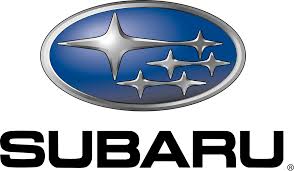
Plaine Products
Plaine Products is working to divert plastic waste from landfills by targeting a piece of plastic found in most peoples homes- shampoo bottles. Plaine Products uses an online, subscription-based platform to sell non-toxic shampoo, conditioner, body wash, and body lotion in reusable bottles. All of their ingredients are vegan and approved by the Environmental Working Group. Consumers can subscribe to the website to receive a new bottle of product as often as they see fit. Each time consumers receive a new bottle of product, they also receive a box and shipping label to return the old bottle for sanitation and reuse. This model is combining zero waste with convenience, attracting those who want to easily and conveniently reduce their waste. The company also partners with non-profits and other groups to help advance global sustainability efforts.
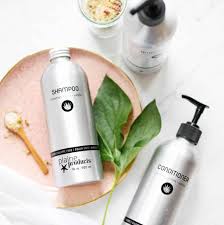
THINX
One woman will use nearly 11,000 single-use, disposable menstrual products in her lifetime. Many of these products will be made with synthetic materials, meaning they’ll still be sitting in a landfill long after we’re gone. As people have started moving towards a zero waste, circular mindset, many women have recognized the need for reusable period products- that's where THINX comes in. THINX makes reusable period underwear for menstruating humans, diverting single-use period products like pads and tampons from the landfill. They have a goal of making the company zero waste by 2025, and have made empowering women one of their central goals (a goal that will help fight climate change).
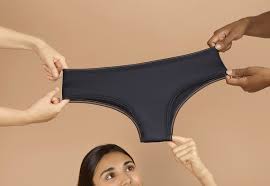
Algotek
While having no single-use products on the market is the ideal, circular world, many companies simply won’t (or can’t) completely rid of their use of single-use products. Algotek is hoping to meet these companies in the middle by providing the market with an algae-based plastic alternative. This algae-based “plastic” is 100% biodegradable and dissolves safely into water- making it safe for marine ecosystems. Algotek plastics are diverse in their thickness and durability, making it easy for them to tailor to the needs of different companies. Algotek is sustainable from the production side of things as well, as growing the algae needed to make these plastics absorbs CO2 from the atmosphere, offsetting emissions. Producing the plastics also creates no hazardous waste, and any byproduct from the creation of the plastic is recycled back into the system of production.
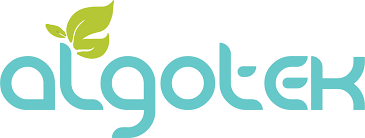
Loop
Loop is an online, global shopping platform that is working with big companies like Clorox, Febreze, Häagen-Dazs, and Pantene to sell their products in reusable packaging. Consumers can go to the Loop website to buy the name brand cleaning products, beauty products, or food products they would normally buy in any typical store. The twist? Instead of receiving them in plastic bottles, their usual packaging, they will receive them in reusable, stainless steel containers. When they use up the product, they simply send back the containers to Loop, who will sanitize and reuse the containers for future orders. This platform of selling traditional products in a non-traditional way is attracting consumers who want to reduce their waste, but don’t want to give up the products from big name brands that they have grown to love.
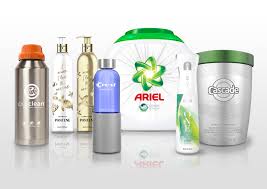
Zero Waste Club
And of course us. Hahaha. We are dedicating our lives to helping the planet and people. So if you don’t already know; Zero Waste Club is an online shopping website based in aiming to make plastic-free, sustainable, and ethical living accessible. They sell food, beauty products, and household products that are all made with sustainable and ethical practices, and also offer a wholesale option for other shops looking to incorporate sustainable, plastic-free items into their inventory. All of their items come in plastic-free packaging and are shipped completely plastic-free. In addition, the cost of planting a tree is incorporated into the cost of each item, so with each item they sell they plant a tree through the Eden Reforestation Projects. So far with this initiative, they have planted 14,140 trees.
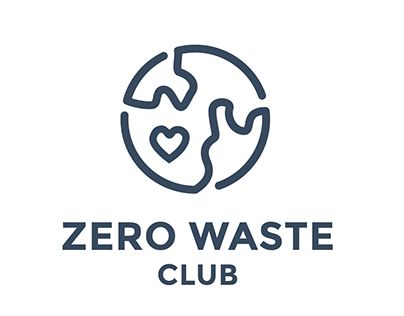

Kayla Guilliams
Is the blog manager for Zero Waste Club, combining her love for writing with her passion for all things environmental sustainability. She is currently a student at the University of North Carolina at Chapel Hill where she is studying journalism, environmental studies, and food studies in hopes of building a career in environmental activism. You can find her on Instagram as @kaylaguilliams.
Is Cork as Sustainable as Companies Make It out to Be?
Posted by Pawan Saunya onAs companies strive to make their products more sustainable, many are turning to cork as their new material of choice. Products like cork binders, cork yoga mats, cork furniture, cork purses, and cork shoes are popping up in shops left and right, touted with the claim of being environmentally sustainable- because they’re made of cork. Are these claims simply a marketing ploy, or is cork really that sustainable?
THE GOOD:
Cork is made from harvesting bark from cork oak trees. Harvesting the bark doesn’t damage the trees and also doesn’t require the trees to be cut down, allowing them to regenerate bark to be harvested again. It takes the trees around nine years to grow back the bark, and this nine-year cycle can go on for nearly 200 years.
As the cork oak trees regenerate and grow, they absorb and retain carbon dioxide from the atmosphere. The 2.3 million hectares of cork oak forest scattered around the world retains around 14.4 million pounds of carbon- an amount equivalent to burning 720,000 pounds of gasoline. The forests also serve as vital hotspots of biodiversity, according to a 2014 study of the material.
In addition to cork trees being inherently regenerative, they also require very few inputs. They grow naturally without the need of man-made irrigation, pesticides, fertilizers, or pruning. This allows the material to have a very low carbon footprint without contributing to the pollution of waterways (like most crops and materials do).
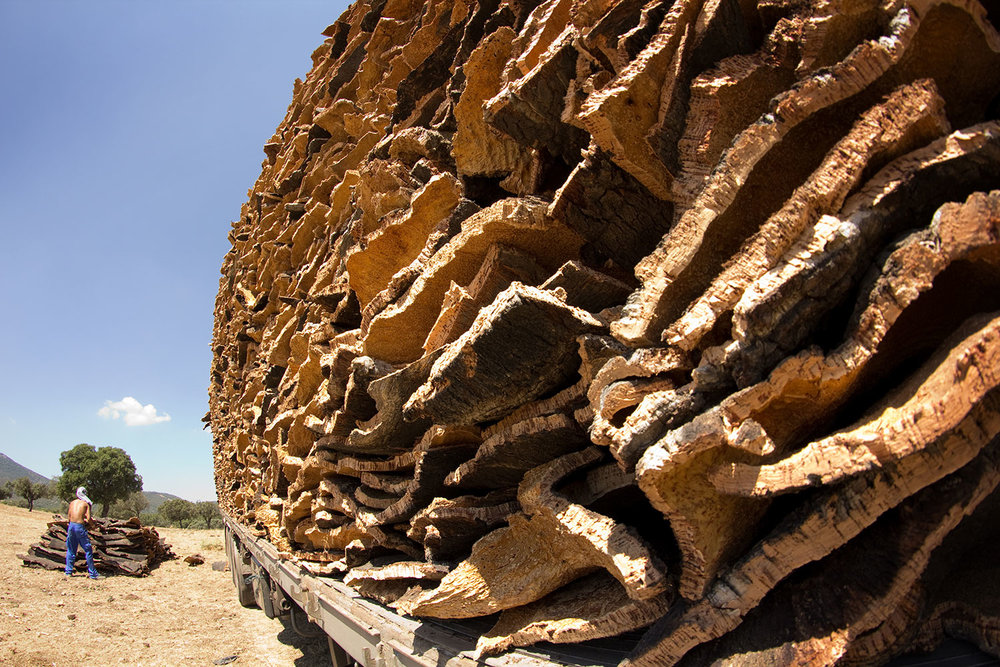
Picture courtesy of the Cork Forest Conservation Alliance
After the cork is harvested, it is sent to a factory to be dried, boiled, and processed. Processing is generally a very carbon intensive process, but in the case of cork, it isn’t. According to the Cork Forest Conservation Alliance, 90% of the energy needed to process the cork comes from burning a naturally occurring byproduct of the processing- cork dust. This greatly reduces emissions and waste, allowing for a more circular system of production.
After processing, cork is then made into the products we see on store shelves- furniture, flooring, binders, shoes, backpacks, yoga mats, coasters, etc. The possibilities of cork are endless because it’s a naturally impermeable, durable, and insulating, allowing it to be suitable for a multitude of uses. It can even be used to construct buildings.
THE (POTENTIAL) BAD:
It’s obvious that cork is sustainable in terms of its production and processing, but what about its disposal? Cork products can either be recycled into new products or composted. However, this isn’t always the case. Some products are made with other additives, such as adhesives, that render the cork unable to compost. If you have cork flooring, for example, you probably used adhesive to install it, making it non-compostable (unless you used some form of a compostable adhesive).
To ensure the cork product you’re buying is compostable, make sure it is made from pure cork, and make sure you’re buying from a company that is transparent about the materials that are used in making their product. The best way to ensure that the product you’re buying is truly compostable and/or recyclable is to buy products from small, local businesses and craftsmen who are more knowledgeable about the products they sell compared to typical stores.

Kayla Guilliams
Is the blog manager for Zero Waste Club, combining her love for writing with her passion for all things environmental sustainability. She is currently a student at the University of North Carolina at Chapel Hill where she is studying journalism, environmental studies, and food studies in hopes of building a career in environmental activism. You can find her on Instagram as @kaylaguilliams.
